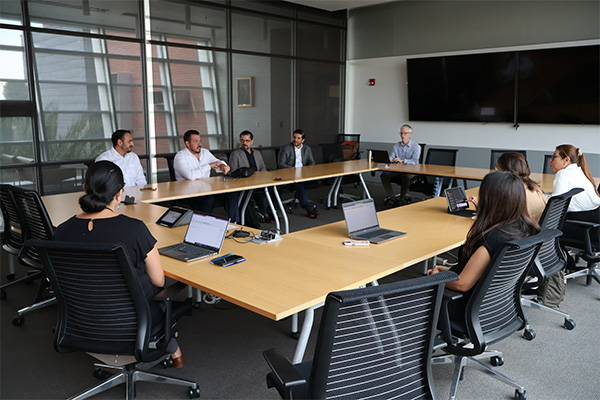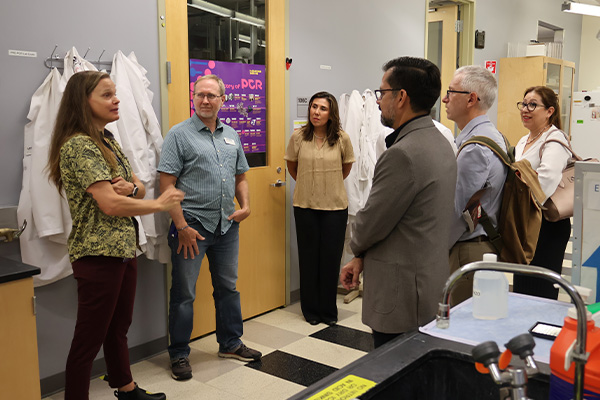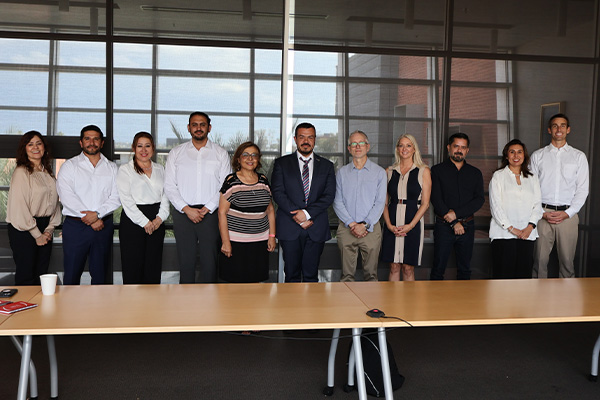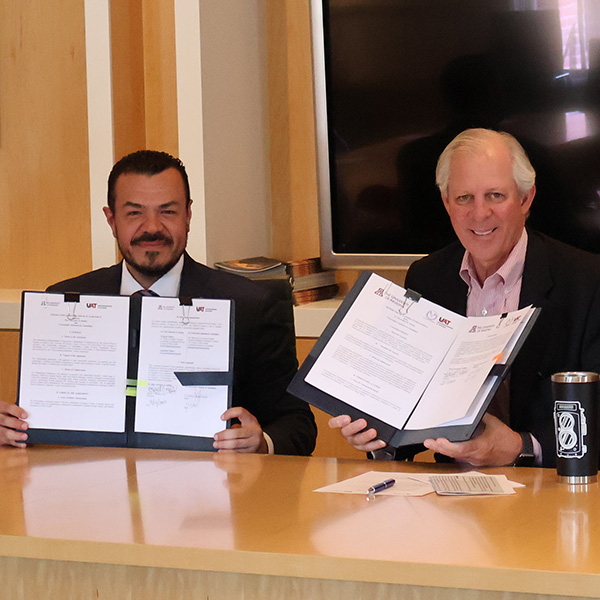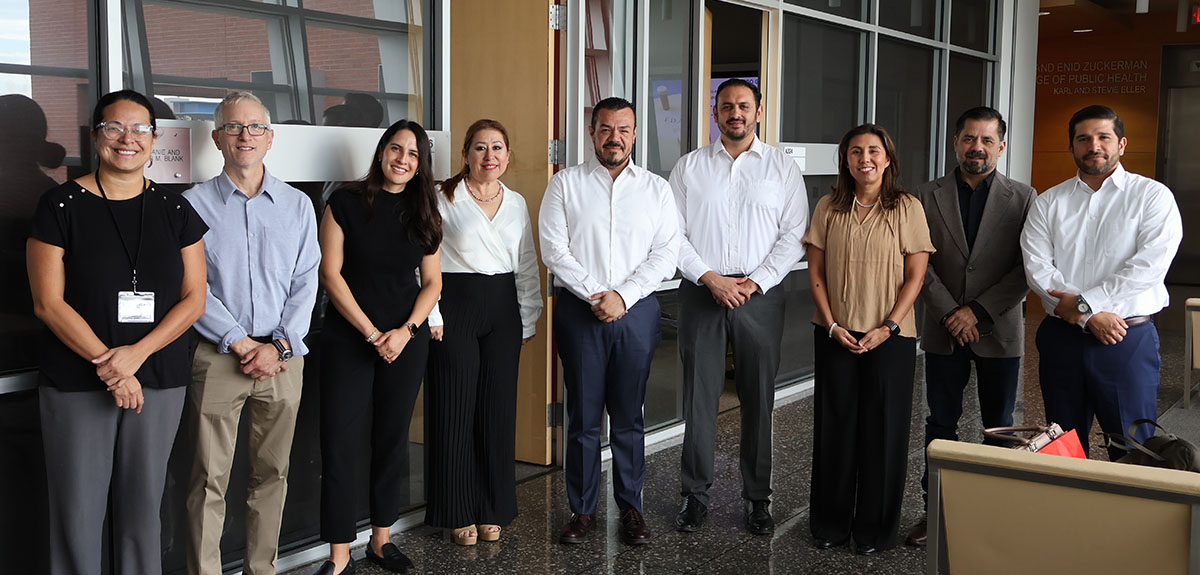Representatives from the Universidad Autónoma de Tamaulipas in Mexico visited the University of Arizona to build a new partnership
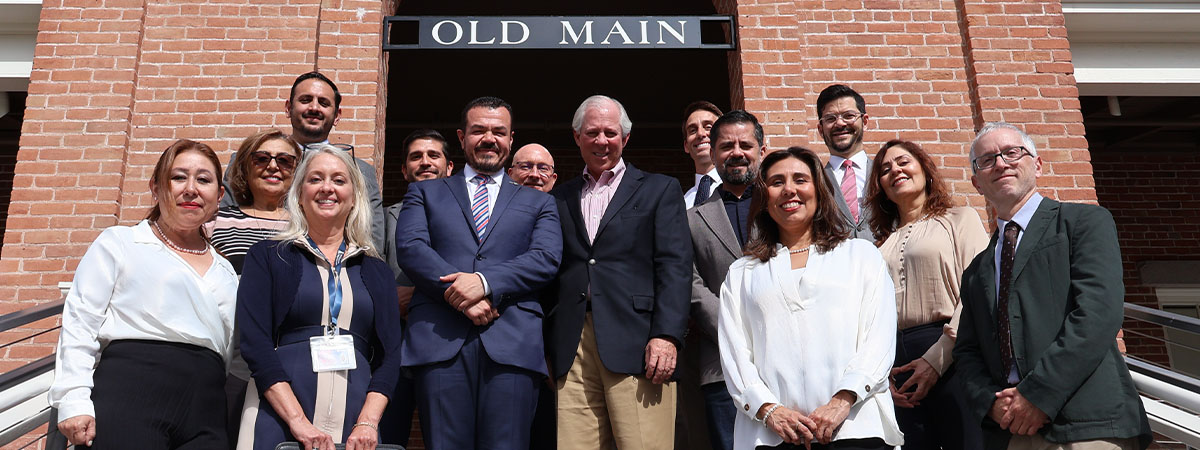
Representatives from the Universidad Autónoma de Tamaulipas (UAT) in Mexico visited the University of Arizona to build a new research and education partnership and sign a Memorandum of Agreement.
Representatives from the Universidad Autónoma de Tamaulipas (UAT) in Mexico visited the University of Arizona to build a new partnership between the two universities and sign a Memorandum of Agreement (MOA) with President Robbins. In particular, the UAT will partner with MEZCOPH to advance One Health research, education, and projects designed to address environmental contamination and improve human health.
The delegation from Universidad Autonoma de Tamaulipas included:
- MC. Guillermo Mendoza Cavazos, Rector de la Universidad Autónoma de Tamaulipas
- Mtro. Edgar Carreño Herrera, Secretario Privado del Rector
- Dra. Mariana Zerón Félix, Secretaria de Investigación y Posgrado
- Dr. Flaviano Benavides González, Director de la Facultad de Medicina Veterinaria y Zootecnia
- Dra. María de la Luz Vázquez Sauceda, Jefa de la División de Estudios de Posgrado e Investigación de la Facultad de Medicina Veterinaria y Zootecnia
- Dr. Pablo González Alanís, Coordinador de Extensión y Vinculación de la Facultad de Medicina Veterinaria y Zootecnia
Guided by Dr. Frank von Hippel, the UAT delegation met with many faculty members from the Zuckerman College of Public Health over the course of the two-day visit. In addition, they met with representatives from the UArizona’s Division of Agriculture, Life, and Veterinary Sciences and Cooperative Extension, and from the School of Animal and Comparative Biomedical Sciences in the College of Agriculture, Life, and Environmental Sciences.
In a final signing ceremony, the UAT delegation met with UArizona President Robert C. Robbins and Dr. Iman Hakim to sign a Memorandum of Agreement (MOA) between the two universities. This MOA established an official framework for collaboration, simplifying joint research initiatives, facilitating exchanges of faculty and students, and fostering the creation of joint academic programs. We are confident that this partnership will be mutually beneficial and contribute significantly to the advancement of One Health research and education.
All of us in the college want to thank the representatives from the Universidad Autónoma de Tamaulipas for their visit. Our faculty enjoyed the discussions on a range of research and education topics where we have shared interests. Looking ahead, we will be pleased to collaborate with UAT on future public health education and research endeavors and build the partnership between the two universities.
